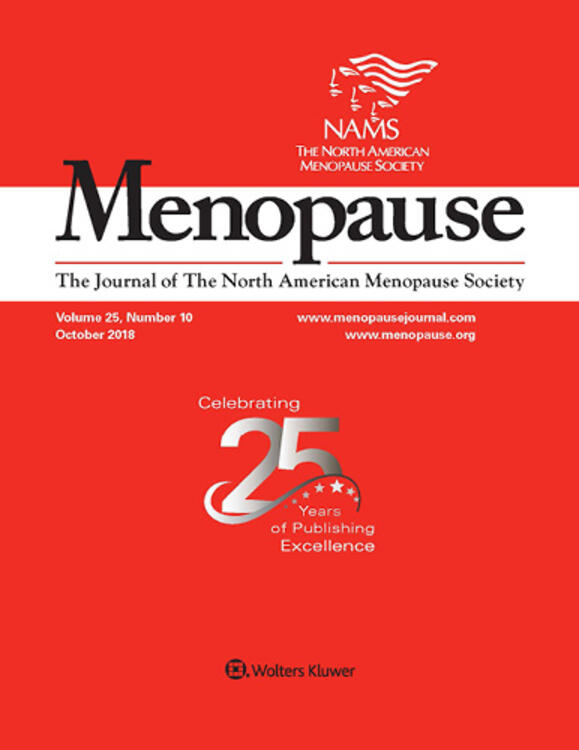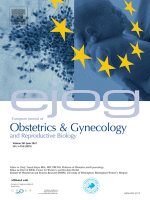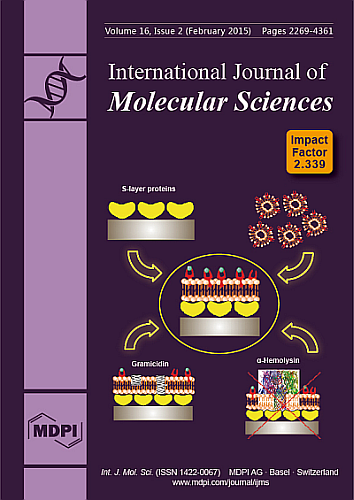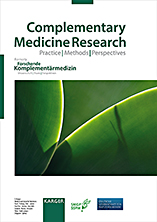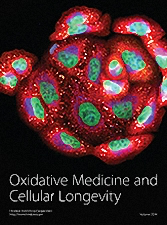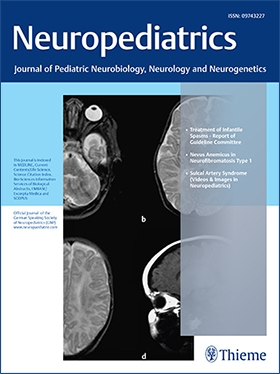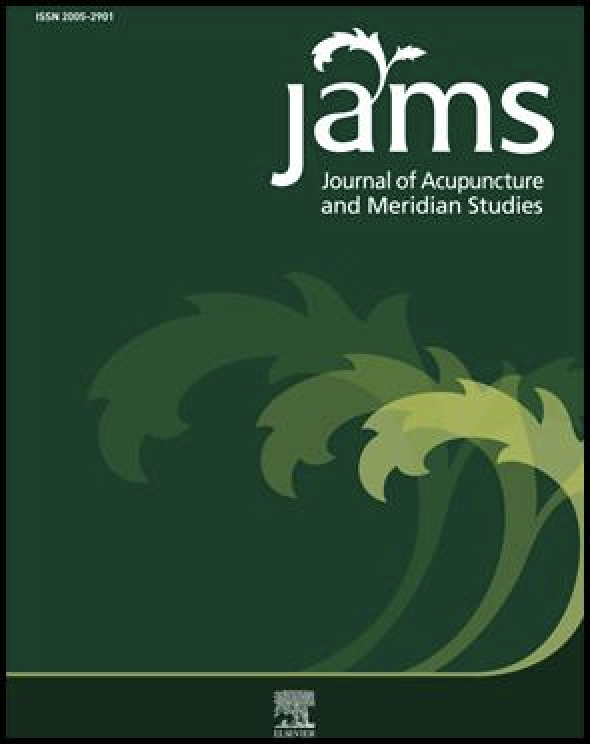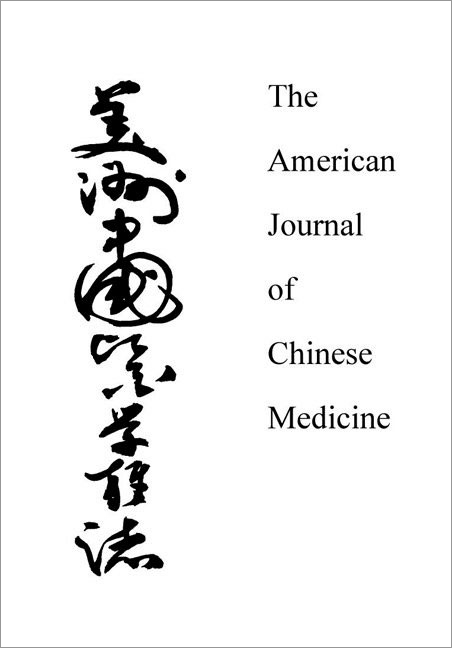
Acupuncture for Menopausal Syndrome & Hot Flushes.
The majority of women will enter menopause in their early 50s and may experience menopause symptoms for 4-5 years on average.
The most prominent symptom of menopause is hot flushes, which affect around 75% of menopausal women. Other menopausal syndrome symptoms include night sweats, emotional vulnerability, sleep disturbances, fatigue, cognitive changes, joint pain, vaginal dryness and loss of sexual desire.
Experiencing strong menopause symptoms can greatly affect a woman's quality of life, relationships, work productivity and her use of health services.
What is our clinical experience?
Based on feedback collected from over 562 initial appointments for Menopause Symptoms, 85% of our patients reported improved quality of life after their first 5 appointments. See our detailed benchmarking statistics.
Initial
Consults
562
Average
Appointments
5
Improved
Quality of Life
85%
Refer Family &
Friends
94%
What does the research say?
The following insights are obtained from systematic reviews and analysis of clinical trials investigating the efficacy of Chinese medicine and acupuncture for menopausal syndrome & hot flushes.
2023 Phytotherapy Research
Pomegranate can significantly enhance women's health during and after menopause by reducing hot flashes severity and other menopause symptoms.
The study aimed at understanding the impacts of pomegranate on women's health through and following menopause. To gather data, a rigorous search was conducted on various academic platforms, including PubMed, Web of Science, Cochrane, Scopus, and Google Scholar, up to the end of 2022. All forms of clinical research studies, from randomized clinical trials to case series, were considered for review. The material was evaluated using the Cochrane RoB 2.0 tool specifically for quality assessment of randomized clinical trials. To quantify the effects of the pomegranate intervention, standardized mean differences were calculated using a random effect model.
It was found that pomegranate significantly reduces the severity of hot flashes in menopausal women, improves their high-density lipoprotein levels, and reduces the Follicle-Stimulating Hormone (FSH). However, no significant improvement was noticed in the low-density lipoprotein, body mass index, and body weight. Despite these findings, the study recognized that the results' conclusiveness was hampered due to small sample sizes and the lack of study design elements such as blinding and randomization.
Pomegranate effects on the health aspects of women during peri†and postmenopause: A systematic review and metaâ€analysis Moeini R, Shirafkan H, Gorji N
2023 Phytotherapy Research
Pomegranate can significantly enhance women's health during and after menopause by reducing hot flashes severity and other menopause symptoms.
The study aimed at understanding the impacts of pomegranate on women's health through and following menopause. To gather data, a rigorous search was conducted on various academic platforms, including PubMed, Web of Science, Cochrane, Scopus, and Google Scholar, up to the end of 2022. All forms of clinical research studies, from randomized clinical trials to case series, were considered for review. The material was evaluated using the Cochrane RoB 2.0 tool specifically for quality assessment of randomized clinical trials. To quantify the effects of the pomegranate intervention, standardized mean differences were calculated using a random effect model.
It was found that pomegranate significantly reduces the severity of hot flashes in menopausal women, improves their high-density lipoprotein levels, and reduces the Follicle-Stimulating Hormone (FSH). However, no significant improvement was noticed in the low-density lipoprotein, body mass index, and body weight. Despite these findings, the study recognized that the results' conclusiveness was hampered due to small sample sizes and the lack of study design elements such as blinding and randomization.
Pomegranate effects on the health aspects of women during peri†and postmenopause: A systematic review and metaâ€analysis Moeini R, Shirafkan H, Gorji N
2022 Medicine
High prevalence of insomnia, anxiety, and depression among perimenopausal women, emphasizing the importance of exploring acupuncture as a potential green therapy for effectively addressing these interconnected issues.
This passage discusses the prevalence of insomnia among perimenopausal women, its association with anxiety and depression, and the potential of acupuncture as a green therapy for treating these issues. The passage outlines the objectives and methods of a systematic review aiming to evaluate the efficacy of acupuncture in improving sleep quality and alleviating anxiety and depression in perimenopausal women, highlighting the need for safer alternatives to conventional medications and the significance of such a study.
Can acupuncture improve sleep quality and anxiety among women during perimenopause? Ping Y, Liang C, Fan X, Zhang L, Ying D, Wang Z
2022 Menopause
A diet low in fat, vegan, and inclusive of daily cooked soybeans significantly reduces the frequency and severity of hot flashes in postmenopausal women.
The methodology used involved the selection of 84 postmenopausal women who reported at least two moderate-to-severe hot flashes. These women were randomly divided into two cohorts, one prescribed the dietary intervention of a low-fat, vegan diet coupled with daily servings of cooked soybeans and a control group which did not alter their diet. Over a 12-week period, a mobile application was used to track hot flashes in terms of frequency and severity. Further, the participants’ vasomotor, psychosocial, physical, and sexual symptoms were assessed using the Menopause-Specific Quality of Life questionnaire. In some participants, the presence of urinary equol, a compound formed in the gut after consuming soy, was measured following the intake of the specified amount of soybeans for 3 days.
In discussing the results, a remarkable decrease was noted in the frequency and severity of hot flashes experienced by the group assigned the dietary intervention versus those in the control group. In addition, after 12 weeks, half of the participants adhering to the vegan diet and daily soy intake reported complete cessation of moderate-to-severe hot flashes. Furthermore, notable decreases were reported in the intervention group in menopause-specific quality of life domains including vasomotor, physical, and sexual. Neither the season nor the participant's ability to produce equol played a notable role in these improvements.
A dietary intervention for vasomotor symptoms of menopause: a randomized, controlled trial Barnard ND, Kahleova H, Holtz DN, Znayenko-Miller T, Sutton M, Holubkov R, Zhao X, Galandi S, Setchell KDR
2022 Nutrients
Soybean lettuce extract effectively reduces symptoms of menopause syndrome without notable side effects.
The study targeted adult women suffering from menopausal syndrome with a Kupperman index of 15 or more. Participants were split into two groups – the experimental group and the placebo group. The research spanned over a four-week period and embraced a total of 39 participants (with one dropping out). Measurements of body mass index, waist circumference, and several cholesterol levels were taken before and after the study, but these didn't show any significant changes.
In the results discussion, the most notable finding was a significant reduction in the Kupperman index in the experimental group. They were given the natural nitric oxide-containing soybean lettuce extract. This decrease denotes the alleviation of menopausal symptoms, offering an effective, natural alternative to hormone therapy. Conversely, the placebo group didn't show any substantial change, reinforcing the efficacy of the soybean lettuce extract.
Evaluation of the Effectiveness of Fermented Soybean-Lettuce Powder for Improving Menopausal Symptoms Han AL, Lee HK, Chon HS, Pae HO, Kim MS, Shin YI, Kim S
2022 Nutrition Research and Practice
Isoflavone supplementation noticeably impacts menopausal symptoms and hormonal changes in postmenopausal women.
In order to examine isoflavones effects on menopausal symptoms and the associated hormonal alterations, a systematic review and meta-analysis were conducted. To do this, the PubMed and EMBASE databases were used, but the selected studies were restricted to random controlled trials (RCTs) assessing isoflavone supplementation's impact on menopausal symptoms. Overall, 11 studies were chosen for the final quantitative evaluation, and the isoflavone intervention amount varied among these studies.
The Meta-analysis displayed that supplementing isoflavones meaningfully increased estradiol levels and the Kupperman index (a composite scoring of multiple menopausal symptoms intensity). Yet, there were no significant impacts observed on hot flashes, or the release of two specific hormones: follicle-stimulating hormone and luteinizing hormone. It should be noted that there was a significant inconsistency in estradiol levels and Kupperman index findings among different studies.
Effect of isoflavone supplementation on menopausal symptoms: a systematic review and meta-analysis of randomized controlled trials Kang I, Rim CH, Yang HS, Choe JS, Kim JY, Lee M
2021 Acupuncture in Medicine
Acupuncture's potential in reducing menopausal hot flush frequency compared to sham acupuncture, and its similarity in impacting hormone levels to hormone therapy.
This study aimed to assess acupuncture's effectiveness and safety in treating menopausal hot flushes and its impact on hormone levels. Through meta-analyses of thirteen randomized controlled trials involving 1784 patients, it found that acupuncture reduced hot flush frequency compared to sham acupuncture, but didn't affect end scores of frequency or severity. Acupuncture demonstrated hormone level effects similar to hormone therapy. However, due to limited trial quality and quantity, further high-quality trials are necessary for definitive conclusions.
Effect of acupuncture on menopausal hot flushes and serum hormone levels: a systematic review and meta-analysis Liu C, Wang Z, Guo T, Zhuang L, Gao X
2021 Complementary Therapies in Medicine
The Licorice and Jujube formula is seen as commonly used and potentially effective for treating menopausal symptoms as per classical Chinese medicine.
The methodology of this study involved exploring classical Chinese medicine textbooks to find the most frequent herbal mix used for symptoms similar to menopause. The approach taken was to sort and identify the formulas from the Encyclopedia of Traditional Chinese Medicine, a comprehensive resource in this field. Following this, a thorough review of randomized controlled trials was performed in order to determine the efficacy of the most common formula.
In terms of results, it was discovered that the Licorice and Jujube formula (LJF) was the most commonly found, mentioned in 36% of the analyzed references. The review of controlled trials revealed that the LJF might be effectively utilized for the improvement of sleep-related symptoms. Additionally, experimental studies hinted at potential benefits of the LJF, including sedative, antidepressant-like, estrogenic, and antiprogestogenic effects.
Licorice (Glycyrrhiza spp.) and jujube (Ziziphus jujuba Mill.) formula for menopausal symptoms: Classical records, clinical evidence and experimental data Coyle ME, Liu J, Yang H, Wang K, Zhang AL, Guo X, Lu C, Xue CC
2021 European Journal of Obstetrics & Gynecology and Reproductive Biology
Phytoestrogens, used in various forms, have shown improvement in urogenital menopause symptoms and improved women's sexual function, promoting overall quality of life.
A thorough and systematic review was conducted on databases including PubMed, EMBASE, Web of Science, Cochrane library, Scopus and ProQuest, spanning from the years 2000-2020. The focus was solely on randomized clinical trials. An evaluation of the quality of selected papers was carried out using the CONSORT checklist. In total, 33 high-quality papers were reviewed which discussed the different forms and uses of phytoestrogens.
The results of this systematic review reveal that phytoestrogens including Pueraria Mirifica, fennel, Hop plant, Glycine Max, soy, red clover, black cohosh, ginsing, cimicifugaracemosa, genistein, diadzein, glycitein and isoflavone, used as various products such as oral capsules, pills, food supplements, enriched powders, vaginal gels, creams and suppositories, improved menopausal urogenital symptoms. Particularly, the recovery rate was found to be higher when these were applied vaginally. Further implication of these findings is the enhancement of women's sexual function following treatment, validating the use of phytoestrogens as a safe, low-risk and accessible method to alleviate urogenital symptoms.
Impact of phytoestrogens on treatment of urogenital menopause symptoms: A systematic review of randomized clinical trials Abdi F, Rahnemaei FA, Roozbeh N, Pakzad R
2021 International Journal of Molecular Sciences
Isoflavones found in soybeans can reduce risks of certain cancers and alleviate menopause-related symptoms among women, such as vasomotor syndromes, spinal bone loss, and hypertension.
The study overviewed soybeans' chemical composition and focused mainly on isoflavones. The research examined the processes of soybean preparation that includes cleaning, drying, crushing, and dehulling, and extraction methods to derive various soy products, particularly focusing on isoflavones - daidzein, genistein, and S-equol. Various soy products such as refined soy oil, soy lecithin, free fatty acids, glycerol, and soybean meal were discussed, along with the presence of the minor biological constituents in remaining components.
The study explored the relationship between isoflavone consumption and disease prevention, particularly in relation to heart disease, cancer incidence—of the breast, bladder, and endometrial and colorectal—and menopause-related symptoms. The therapeutic effects of isoflavones were studied in the context of vasomotor syndromes, spinal bone loss, hypertension regulation, depressive symptoms during pregnancy, and in vitro glycemic control. In contrast, it failed to find definitive effects of isoflavones on cognition improvement and urogenital symptoms. The inconsistencies in defining the ingredients, doses, study durations, and outcomes of isoflavone studies proved challenging for the research.
Utilization of Isoflavones in Soybeans for Women with Menopausal Syndrome: An Overview Chen LR, Chen KH
2021 Nutrients
Moderate daily consumption of beer, both with and without alcohol, can significantly alleviate menopause-related symptoms and improve cardiovascular health in postmenopausal women.
In the research, 37 postmenopausal women were voluntarily put through a parallel controlled intervention trial, involving three study groups. The trial involved 16 women consuming beer with alcohol (330 mL/day), 7 women consuming non-alcoholic beer (660 mL/day), and 14 women as control.
In assessing the results, it was found that both interventions, beer with and without alcohol, substantially reduced the severity of menopause-associated symptoms. Specifically, beer with alcohol positively contributed to reducing psychological discomforts linked to menopause when compared to the control group. It was additionally noted that these beneficial effects could be traced to the non-alcoholic section of the beer, as the sex hormone profile remained largely unchanged across the different study groups. In addition, the group that consumed non-alcoholic beer conveyed improvements in their lipid profiles and exhibited lower blood pressure levels, indicating better cardiovascular health.
Moderate Consumption of Beer (with and without Ethanol) and Menopausal Symptoms: Results from a Parallel Clinical Trial in Postmenopausal Women Trius-Soler M, Marhuenda-Muñoz M, Laveriano-Santos EP, MartÃnez-Huélamo M, Sasot G, Storniolo CE, Estruch R, Lamuela-Raventós RM, Tresserra-Rimbau A
2019 Biomedicines
Guizhi Fuling Wan, a traditional herbal formula, can improve peripheral blood flow in menopausal hot flush sufferers, despite not changing the frequency or severity of the flushes.
The methodology used in this study involved a comprehensive literature search across 20 English and Chinese databases for relative clinical and experimental studies. From the nearly 13,000 studies identified, only 46 were evaluated as relevant and thus included in the review. These articles were comprised of seven clinical studies detailing Guizhi Fuling Wan's effects on menopausal hot flushes and 35 phytochemical analysis studies that identified the 169 chemical compounds in the herbal formula. Four experimental studies were also utilized to discover the potential therapeutic effects and target proteins/cytokines related to these hot flushes.
The findings indicate that Guizhi Fuling Wan, despite exhibiting no significant impact on the frequency or severity of menopausal hot flushes, may have positive effects on peripheral blood flow. The blood flow improvements were specifically noted in the fingertips, jaw, and toes. Additionally, the analysis of the herbal formula revealed 169 distinct chemical compounds. Through experimental studies, potential therapeutic effects on target proteins/cytokines - including estrogen receptor beta with genetic variation, the calcitonin gene-related peptide receptor, and interleukin-8, were further highlighted. However, these therapeutic effects were inconsistent across different studies, which may be due to dosage differences and genotype variation.
A Classic Herbal Formula Guizhi Fuling Wan for Menopausal Hot Flushes: From Experimental Findings to Clinical Applications Li , Hung , Li , Yang
2019 Biomedicines
Guizhi Fuling Wan, a traditional herbal formula, can improve peripheral blood flow in menopausal hot flush sufferers, despite not changing the frequency or severity of the flushes.
The methodology used in this study involved a comprehensive literature search across 20 English and Chinese databases for relative clinical and experimental studies. From the nearly 13,000 studies identified, only 46 were evaluated as relevant and thus included in the review. These articles were comprised of seven clinical studies detailing Guizhi Fuling Wan's effects on menopausal hot flushes and 35 phytochemical analysis studies that identified the 169 chemical compounds in the herbal formula. Four experimental studies were also utilized to discover the potential therapeutic effects and target proteins/cytokines related to these hot flushes.
The findings indicate that Guizhi Fuling Wan, despite exhibiting no significant impact on the frequency or severity of menopausal hot flushes, may have positive effects on peripheral blood flow. The blood flow improvements were specifically noted in the fingertips, jaw, and toes. Additionally, the analysis of the herbal formula revealed 169 distinct chemical compounds. Through experimental studies, potential therapeutic effects on target proteins/cytokines - including estrogen receptor beta with genetic variation, the calcitonin gene-related peptide receptor, and interleukin-8, were further highlighted. However, these therapeutic effects were inconsistent across different studies, which may be due to dosage differences and genotype variation.
A Classic Herbal Formula Guizhi Fuling Wan for Menopausal Hot Flushes: From Experimental Findings to Clinical Applications Li , Hung , Li , Yang
2017 PLOS One
Acupuncture is non-inferior to hormone therapy or other applied relaxation therapies in alleviating the symptoms of menopause for its safety, non-invasive and especially considering the side effect of hormone therapy.
This meta-analysis of women with breast cancer confirms that acupuncture had no significant effect on the severity of hot flush, but did significantly alleviate the symptoms of menopause. We conclude that acupuncture is non-inferior to hormone therapy or other applied relaxation therapies in alleviating the symptoms of menopause for its safety, non-invasive and especially considering the side effect of hormone therapy. Recent studies show that use of acupuncture does not correlate with increased levels of plasma estradiol. Considering the safety and lack of serious adverse effects associated with acupuncture, in contrast to hormone therapy, acupuncture should be considered for treating hot flush and menopause syndrome in women with breast cancer.
Effect of acupuncture on hot flush and menopause symptoms in breast cancer- A systematic review and meta-analysis Chien TJ, Hsu CH, Liu CY, Fang CJ.
2017 Complementary Medicine Research
Both the total score and the subgroup analysis strongly indicated that acupuncture can alleviate menopause-related symptoms.
Six studies were included. Our analysis found that acupuncture can reduce the MRS score in menopausal women by the end of the treating period (2-3 months, on average) and even in the follow-up period (1-3 months), not only in the total score but also in each subscale score. But the grade of evidence is very low.
Both the total score and the subgroup analysis strongly indicated that acupuncture can alleviate menopause-related symptoms. However, the evidence is not very strong. Thus, further studies about the efficiency of acupuncture on menopausal symptoms based on well-designed trials are needed.
Acupuncture May Improve Quality of Life in Menopausal Women: A Meta-Analysis of Randomized Controlled Trials Li W, Luo Y, Fu W, Lei R.
2017 Oxidative Medicine and Cellular Longevity
Moderate beer consumption could potentially alleviate menopausal symptoms by influencing the internal estrogen receptors through the phenolic compounds present in beer.
The study used the developments in food analysis techniques over the past two decades to explore the correlation between the intake of polyphenols from moderate beer consumption and the relief of vasomotor symptoms often experienced during menopause. The focus was on phenolic compounds present in beer like 8-prenylnaringenin, 6-prenylnaringenin, and isoxanthohumol and how they interact directly with intracellular estrogen receptors to influence gene expression and sex hormone plasma concentrations.
The observed results pointed to the potential positive effects of moderate beer consumption on menopausal symptoms. It was inferred that phenolic compounds in beer could interact directly with intracellular estrogen receptors, leading to a modulation of gene expression, thereby balancing physiological hormone imbalance in menopausal women. This alternative could serve as a safer option for alleviating menopausal symptoms as traditional hormone replacement therapies have known health risks. However, these findings need to be viewed keeping in mind the implications of beer consumption on overall health.
Beer Polyphenols and Menopause: Effects and Mechanisms—A Review of Current Knowledge Sandoval-RamÃrez BA, Lamuela-Raventós RM, Estruch R, Sasot G, Doménech M, Tresserra-Rimbau A
2016 Revista Latino-Americana de Enfermagem
The study's analysis of 272 articles comparing Traditional Chinese Acupuncture (TCA) and Sham Acupuncture (SA) for managing hot flashes in menopausal breast cancer patients indicates that while 3 studies leaned towards TCA's effectiveness, 2 showed both interventions to be beneficial.
The study encompassed the analysis of 272 articles from five selected databases, resulting in the inclusion of five manuscripts meeting the eligibility criteria. The primary focus was on comparing the efficacy of Traditional Chinese Acupuncture (TCA) to Sham Acupuncture (SA) in managing hot flashes among menopausal women with breast cancer. Among the selected studies, three indicated that TCA was more effective in reducing the frequency and intensity of hot flashes, while two found both interventions to be beneficial, though not significantly distinct. These studies exhibited considerable diversity in their designs, sample sizes, treatment durations, and acupuncture protocols. TCA appeared to hold promise in mitigating hot flashes, yet several methodological limitations and potential biases within the reviewed studies were noted. Consequently, there's a call for further comprehensive, large-scale, and long-term trials to elucidate TCA's true potential and overcome the limitations observed in the current body of research.
Effectiveness of Traditional Chinese Acupuncture versus Sham Acupuncture: a Systematic Review Carlos, LuÃs et al.
2015 Menopause
Acupuncture improves hot flash frequency and severity, menopause-related symptoms, and quality of life (in the vasomotor domain) in women experiencing natural menopause.
Of 104 relevant studies, 12 studies with 869 participants met the inclusion criteria and were included in this study. We found that acupuncture significantly reduced the frequency and severity of hot flashes. Acupuncture significantly decreased the psychological, somatic, and urogenital subscale scores on the Menopause Rating Scale. Acupuncture improved the vasomotor subscale score on the Menopause-Specific Quality of Life questionnaire. Long-term effects (up to 3 mo) on hot flash frequency and severity were found.
This meta-analysis confirms that acupuncture improves hot flash frequency and severity, menopause-related symptoms, and quality of life (in the vasomotor domain) in women experiencing natural menopause.
Effects of acupuncture on menopause-related symptoms and quality of life in women in natural menopause: a meta-analysis of randomized controlled trials Chiu HY, Pan CH, Shyu YK, Han BC, Tsai PS.
2013 Neuropediatrics
Hop extract, particularly its component 8-Prenylnaringenin (8-PN), demonstrates potential in alleviating symptoms common in menopause such as osteoporosis, vasomotoric disturbances, and sexual motivation.
The methodology of this research involved identifying the major constituents of hop extract, with a focus on 8-Prenylnaringenin (8-PN) due to its estrogenic qualities. Several in vivo studies were conducted to explore the potential of hop extract and 8-PN in mitigating climacteric symptoms. Clinical studies conducted have mainly centered around menopausal discomforts, still, these studies provided broad results.
In the discussion of the results, it was found that hop extract, and more prominently, 8-PN, show promise in alleviating menopausal symptoms such as osteoporosis, vasomotoric issues, and sexual desire. Although 8-PN primarily activates the estrogen receptor α and presents only slight uterotrophic attributes, it also brings about estrogenic effects on the mammary gland. The results indicate potential application of 8-PN and hop extract in alleviating symptoms commonly associated with menopause.
Hop Extracts and Hop Substances in Treatment of Menopausal Complaints Keiler A, Zierau O, Kretzschmar G
2013 Neuropediatrics
Hop extract, particularly its component 8-Prenylnaringenin (8-PN), demonstrates potential in alleviating symptoms common in menopause such as osteoporosis, vasomotoric disturbances, and sexual motivation.
The methodology of this research involved identifying the major constituents of hop extract, with a focus on 8-Prenylnaringenin (8-PN) due to its estrogenic qualities. Several in vivo studies were conducted to explore the potential of hop extract and 8-PN in mitigating climacteric symptoms. Clinical studies conducted have mainly centered around menopausal discomforts, still, these studies provided broad results.
In the discussion of the results, it was found that hop extract, and more prominently, 8-PN, show promise in alleviating menopausal symptoms such as osteoporosis, vasomotoric issues, and sexual desire. Although 8-PN primarily activates the estrogen receptor α and presents only slight uterotrophic attributes, it also brings about estrogenic effects on the mammary gland. The results indicate potential application of 8-PN and hop extract in alleviating symptoms commonly associated with menopause.
Hop Extracts and Hop Substances in Treatment of Menopausal Complaints Keiler A, Zierau O, Kretzschmar G
2011 Journal of Acupuncture and Meridian Studies
Gui-zhi-fu-ling-wan, a traditional Chinese medicine, can effectively alleviate hot flashes in young patients in a safe manner.
For the methodology, this study was conducted retrospectively, examining the medical records of patients who visited the Department of Cardiovascular and Neurologic Disease, Kyung Hee Oriental Medical Center for hot flashes from between October 1, 2003, to October 1, 2008. Out of 60 cases reviewed, 37 were selected based on the inclusion criteria. The primary measure of improvement was assessed using the visual analog scale.
In the discussion of results, it was noted that the mean improvement in symptoms was significant and a majority of patients experienced a 50% improvement. The secondary analysis revealed that the outcomes of differential diagnosis of cold and hot syndrome and blood stasis syndrome did not affect the scores. Importantly, only a trivial percentage of patients reported adverse events, indicating that Gui-zhi-fu-ling-wan may be a safe therapy for hot flashes.
Effect of Gui-zhi-fu-ling-wan on Hot Flashes in Young Patients: A Retrospective Case Series Cho KH, Kim YS, Jung WS, Kim TH
2005 The American Journal of Chinese Medicine
Gui-zhi-fu-ling-wan, a herbal therapy, depicts to be a viable alternative to hormone replacement therapy for treating hot flashes in post-menopausal women experiencing coldness in lower extremities.
In this study, an examination of the connection between extremities' blood flow and hot flashes was conducted among 352 post-menopausal women aged between 46 and 58 who were showing climacteric complaints. 131 of these women, who were experiencing hot flashes, were treated either with HRT or Gui-zhi-fu-ling-wan, a type of herbal therapy. This investigation measured blood flow under the jaw, in the middle finger, and the third toe using laser doppler fluxmetry.
Subsequent to the therapies, there was a notable decrease in the heightened blood flow under the jaw that is associated with hot flashes. However, the herbal therapy, Gui-zhi-fu-ling-wan, interestingly, increased blood flow in the lower extremities while the hormone replacement therapy did not. This suggests that Gui-zhi-fu-ling-wan does not uniformly affect the activity of the vasodilator neuropeptides on the sensory neurons of systemic peripheral vessels, thereby proving more effective in treating hot flashes accompanied with cold lower extremities.
Comparing the Effects of Estrogen and an Herbal Medicine on Peripheral Blood Flow in Post-menopausal Women with Hot Flashes: Hormone Replacement Therapy and Gui-Zhi-Fu-Ling-Wan, a Kampo Medicine Ushiroyama T, Ikeda A, Sakuma K, Ueki M
Consult with our practitioners for personalised care and advice.
Although well-conducted clinical research can help members of the public to make better-informed decisions about their healthcare, we cannot claim that any particular treatment may be effective for any individual person.
When you consult with our Chinese medicine practitioners, you'll receive personalised advice and treatment based on your symptoms and Chinese medicine diagnosis.
Scientific References
Browse our collection of scientific clinical research on acupuncture for menopausal syndrome & hot flushes.
It includes recent and reputable papers published by peer-reviewed journals within the last 10 years.

2023, Nov 06
Pomegranate effects on the health aspects of women during peri†and postmenopause: A systematic review and metaâ€analysis
Phytotherapy Research
The review suggests that pomegranate can significantly improve the severity of hot flashes, menopause symptoms, and decrease follicle-stimulating hormone (FSH). Additionally, it improves high-density lipoprotein (HDL) but does not have a significant impact on low-density lipoprotein (LDL), body mass index (BMI), and weight. However, most results are inconclusive, and the study acknowledges limitations such as small sample sizes and a lack of blinding and randomization, leading to an increased risk of bias. The findings suggest that while pomegranate may decrease menopause symptoms, more well-designed studies with larger sample sizes are needed to establish its other clinical benefits for menopausal women.
Moeini R, Shirafkan H, Gorji N Full Article

2022, Jan 14
Can acupuncture improve sleep quality and anxiety among women during perimenopause?
Medicine
This study will provide new evidence on the effectiveness and safety of acupuncture for the treatment of insomnia, anxiety, and depression in perimenopausal women, and provide additional options for clinicians and patients to improve insomnia and anxiety.
Ping Y, Liang C, Fan X, Zhang L, Ying D, Wang Z Full Article

2022, Oct 16
A dietary intervention for vasomotor symptoms of menopause: a randomized, controlled trial
Menopause The North American Menopause Society
The dietary intervention consisting of a plant-based diet and daily soybean consumption significantly reduced the frequency and severity of postmenopausal hot flashes and associated symptoms.
Barnard ND, Kahleova H, Holtz DN, Znayenko-Miller T, Sutton M, Holubkov R, Zhao X, Galandi S, Setchell KDR Full Article

2022, Jul 13
Evaluation of the Effectiveness of Fermented Soybean-Lettuce Powder for Improving Menopausal Symptoms
Nutrients
The study concludes that the soybean lettuce extract effectively alleviates menopausal syndrome symptoms without any special side effects.
Han AL, Lee HK, Chon HS, Pae HO, Kim MS, Shin YI, Kim S Full Article

2022, Jan
Effect of isoflavone supplementation on menopausal symptoms: a systematic review and meta-analysis of randomized controlled trials
Nutrition Research and Practice
Isoflavone supplementation significantly increased estradiol levels and the Kupperman index, but had no significant effect on hot flashes, follicle-stimulating hormone, and luteinizing hormone.
Kang I, Rim CH, Yang HS, Choe JS, Kim JY, Lee M Full Article

2021, Dec 13
Effect of acupuncture on menopausal hot flushes and serum hormone levels: a systematic review and meta-analysis
Acupuncture in Medicine British Medical Acupuncture Society
Acupuncture may not decrease hot flush frequency, but yet appears to have similar effects on serum hormone levels as HT, that is, increased E2 and decreased FSH and LH. Considering that no firm conclusions could be drawn due to the low quality and limited number of included trials included, further high-quality RCTs need to be conducted.
Liu C, Wang Z, Guo T, Zhuang L, Gao X Full Article

2021, Aug
Licorice (Glycyrrhiza spp.) and jujube (Ziziphus jujuba Mill.) formula for menopausal symptoms: Classical records, clinical evidence and experimental data
Complementary Therapies in Medicine
Licorice and Jujube formula (LJF), identified as the most common formula for menopausal symptoms in classical Chinese medicine, demonstrated potential improvements in sleep symptoms based on evidence from four randomized controlled trials (RCTs) and exhibited sedative, antidepressant-like, estrogenic, and antiprogestogenic actions in experimental studies. However, further research is needed to confirm its clinical effects and guide clinical decision-making.
Coyle ME, Liu J, Yang H, Wang K, Zhang AL, Guo X, Lu C, Xue CC Full Article

2021, Jun
Impact of phytoestrogens on treatment of urogenital menopause symptoms: A systematic review of randomized clinical trials
European Journal of Obstetrics & Gynecology and Reproductive Biology
Phytoestrogens in various forms have been shown to improve menopausal urogenital symptoms, including urogenital atrophy, urinary disorders, and sexual function.
Abdi F, Rahnemaei FA, Roozbeh N, Pakzad R Full Article

2021, Mar 22
Utilization of Isoflavones in Soybeans for Women with Menopausal Syndrome: An Overview
International Journal of Molecular Sciences
Higher isoflavone intake is associated with a moderately lower risk of coronary heart disease, reduced risks of breast, colorectal, endometrial, and bladder cancer, as well as alleviation of vasomotor syndromes, bone loss, hypertension, and in vitro glycemic control. However, isoflavones have not shown definitive effects on improving cognition and urogenital symptoms.
Chen LR, Chen KH Full Article

2021, Jun 30
Moderate Consumption of Beer (with and without Ethanol) and Menopausal Symptoms: Results from a Parallel Clinical Trial in Postmenopausal Women
Nutrients
Trius-Soler M, Marhuenda-Muñoz M, Laveriano-Santos EP, MartÃnez-Huélamo M, Sasot G, Storniolo CE, Estruch R, Lamuela-Raventós RM, Tresserra-Rimbau A Full Article

2019, Aug 18
A Classic Herbal Formula Guizhi Fuling Wan for Menopausal Hot Flushes: From Experimental Findings to Clinical Applications
Biomedicines
169 compounds were identified from GFW pills, tablets, and capsules. Therapeutic effects, including frequency and severity of MHFs, peripheral blood flow, hormones, neurotransmitter, and cytokines, were not consistent across different study types. ESR2 with genetic variation, CGRP receptor, and IL-8 were identified to be related to the mechanisms of actions of GFW on MHFs. The differences in therapeutic effects could be potentially due to dose variations among clinical and experimental studies and ESR2 gene differences in rats and homo species.
Li , Hung , Li , Yang Full Article

2017, Aug 22
Effect of acupuncture on hot flush and menopause symptoms in breast cancer- A systematic review and meta-analysis
PLOS One Public Library of Science
Acupuncture significantly alleviated menopause symptoms, but had no effect on hot flush. Breast cancer patients concerned about the adverse effects of hormone therapy should consider acupuncture. Further large-scale studies that also measure biomarkers or cytokines may help to elucidate the mechanism by which acupuncture alleviates menopause symptoms in patients with breast cancer.
Chien TJ, Hsu CH, Liu CY, Fang CJ. Full Article

2017, Oct 12
Acupuncture May Improve Quality of Life in Menopausal Women: A Meta-Analysis of Randomized Controlled Trials
Complementary Medicine Research
Both the total score and the subgroup analysis strongly indicated that acupuncture can alleviate menopause-related symptoms. However, the evidence is not very strong. Thus, further studies about the efficiency of acupuncture on menopausal symptoms based on well-designed trials are needed.
Li W, Luo Y, Fu W, Lei R. Full Article

2017, Jan
Beer Polyphenols and Menopause: Effects and Mechanisms—A Review of Current Knowledge
Oxidative Medicine and Cellular Longevity
Sandoval-RamÃrez BA, Lamuela-Raventós RM, Estruch R, Sasot G, Doménech M, Tresserra-Rimbau A Full Article

2016, Aug 15
Effectiveness of Traditional Chinese Acupuncture versus Sham Acupuncture: a Systematic Review
Revista Latino-Americana de Enfermagem University of Sao Paulo at Ribeirao Preto College of Nursing
The evidence gathered was not sufficient to affirm the effectiveness of traditional acupuncture compared with sham acupuncture.
Carlos, LuÃs et al. Full Article

2015, Feb
Effects of acupuncture on menopause-related symptoms and quality of life in women in natural menopause: a meta-analysis of randomized controlled trials
Menopause The North American Menopause Society
This meta-analysis confirms that acupuncture improves hot flash frequency and severity, menopause-related symptoms, and quality of life (in the vasomotor domain) in women experiencing natural menopause.
Chiu HY, Pan CH, Shyu YK, Han BC, Tsai PS. Full Article

2013, Mar 19
Hop Extracts and Hop Substances in Treatment of Menopausal Complaints
Neuropediatrics
Keiler A, Zierau O, Kretzschmar G Full Article

2011, Jun
Effect of Gui-zhi-fu-ling-wan on Hot Flashes in Young Patients: A Retrospective Case Series
Journal of Acupuncture and Meridian Studies Medical Association of Pharmacopuncture Institute
Cho KH, Kim YS, Jung WS, Kim TH Full Article

2005, Jan
Comparing the Effects of Estrogen and an Herbal Medicine on Peripheral Blood Flow in Post-menopausal Women with Hot Flashes: Hormone Replacement Therapy and Gui-Zhi-Fu-Ling-Wan, a Kampo Medicine
The American Journal of Chinese Medicine
Ushiroyama T, Ikeda A, Sakuma K, Ueki M Full Article
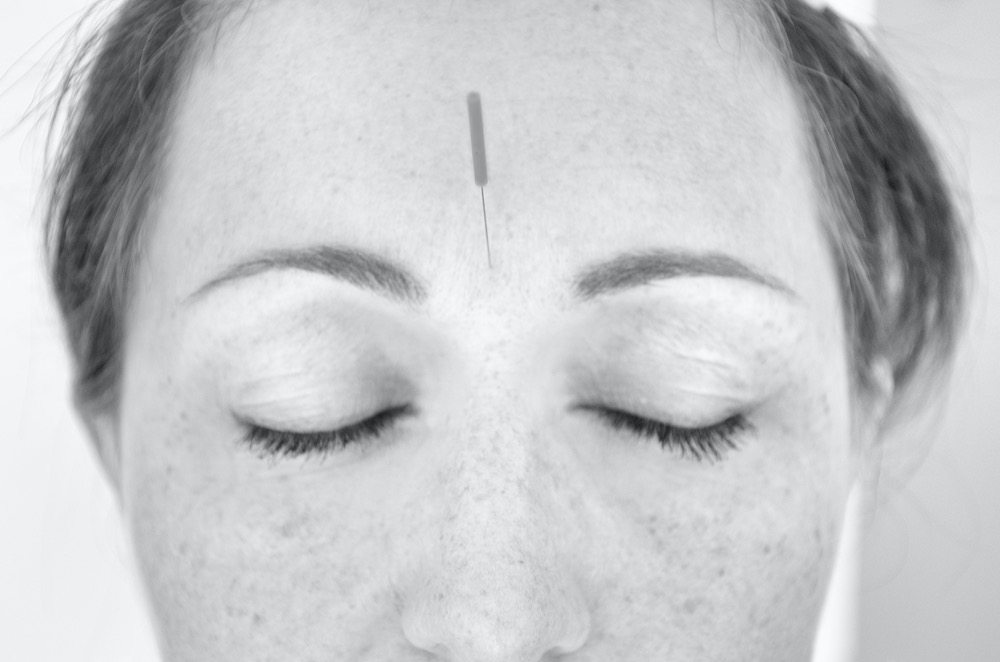
“It is by virtue of the twelve channels that human life exists, that disease arises, that human beings can be treated and illness cured. The twelve channels are where beginners start and masters end.” The Classic of Acupuncture
Circa 1st Century BCE


